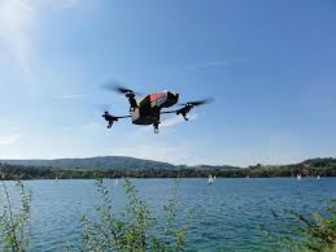Home
Focus Areas
About Us
A woman who lost her legs to amputation at age 5 is about to become the first person in the world to experience a sense of touch, grip force, and hand opening with a neural-enabled prosthetic hand.
The University of Arkansas for Medical Sciences and Snell Prosthetics and Orthotics have received a $2 million grant from the National Institutes of Health to study the technology, which works by harnessing the brain's ability to perceive the environment in which a person touches, holds, or opens a hand, reports the New York Times.
"We do a lot of prosthetic work with amputees, and the idea of being part of something that could give amputees sensation is incredibly meaningful," says a UAMS surgeon, who will perform the surgery on the woman.
The woman will be fitted with a custom-made neural-enabled prosthetic hand, which has a 3D printer to create 3D images of the user's hand and hand movements.
The images are then transferred to a computer, where they can be interpreted by the user's own brain.
The woman will then be able to touch, hold, and open the hand with these "gesture signals," which the computer then interprets and sends back to the user.
The woman will also be able to
Selected Grant News Headlines
A customized collection of grant news from foundations and the federal government from around the Web.
Nancy Brinker is the founder of the Susan G. Komen for the Cure breast cancer charity, but she's also the author of a best-selling memoir about her own battle with the disease. So it was only...more
A team of University of Pittsburgh health sciences students has won a " Healthy Equity Innovation Award" at a national case competition for their plan to deal with a pandemic involving...more
"By investing in our employees' holistic well-being, we are setting a new standard for what it means to be a truly people-first organization in the healthcare industry." So says John Sebastian,...more
WhenBilha Obaigwa arrived in the US from Kenya in 2019, she had already earned a bachelor's degree in law back home in her native Kenya. So she set out to pursue a master's degree in health law...more
For two days in March, music fans gathered in Phoenix's Steele Indian School Park for the McDowell Mountain Music Festival, which featured electronic dance music (EDM), R&B, and indie rock. But...more
Foundation: Rockefeller Foundation, Winthrop Rockefeller Foundation
The University of Arkansas at Pine Bluff is honoring five people for their "extensive community involvement, philanthropic endeavors, and exemplary service to the community," per a release. The...more
"I was working in corporate America for one of the world's largest retail companies, and it was challenging and wonderful in many ways. But I was finding my truest fulfillment on Saturday...more
It's a sign of the times: A real estate research firm has been bought by a private equity firm in a deal that values the company at more than $1 billion. The New York Times reports on GRESB's...more
"The climate time-bomb is ticking. We need to seize the opportunity to invest in credible innovations that can contribute to reaching our global targets," UN Secretary-General Ant ? nio Guterres...more
The Asian Development Bank and the Global Fund to Fight AIDS, Tuberculosis, and Malaria are teaming up to fight infectious diseases in Asia and the Pacific. The two organizations on Tuesday...more
Health News from...
Gates Foundation
Whitefish Community Foundation
Community Foundation of Broward
Central Valley Community Foundation
Rhode Island Foundation
Porter County Community Foundation
Changemakers
Luzerne Foundation
Community Foundation of Western North Carolina
Winona Community Foundation
Social Entrepreneurship
Spotlight
Why People Buy from Social Enterprises?

The Guardian has compiled a list of responses to its latest open thread, and has announced the winner of the social enterprise gift hamper packed with presents.









